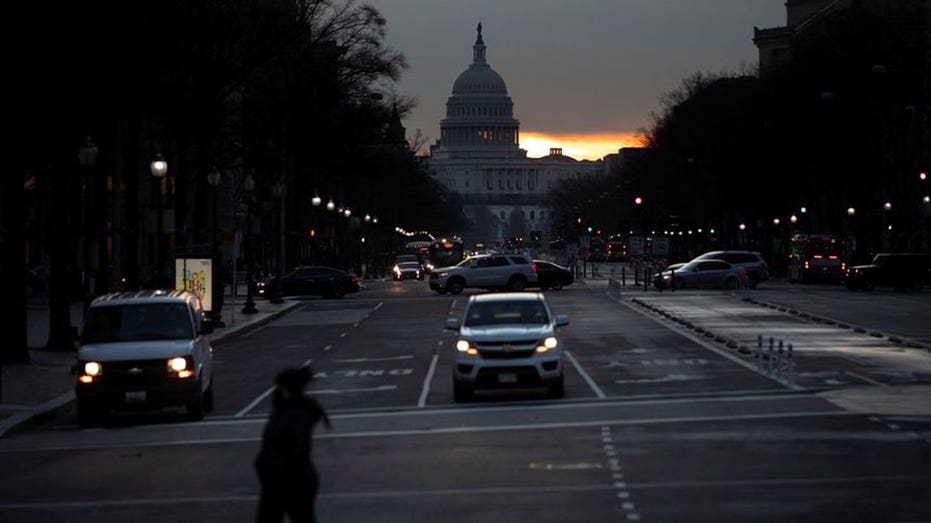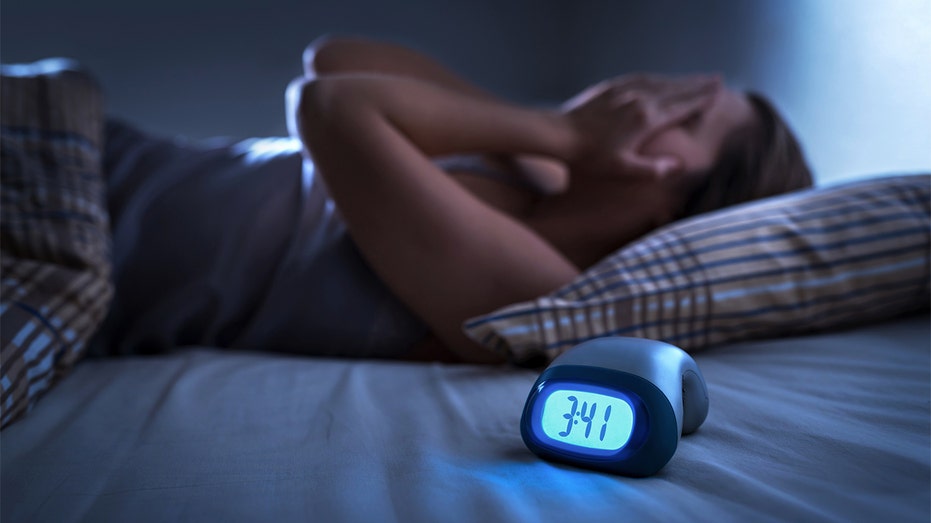Here are your FOX Business Flash top headlines for March 23.
Permanently moving to daylight-saving time is likely to cause more harm than good when it comes to our health, sleep science indicates.
For years, researchers have bemoaned the biannual changing of the clocks, saying shifting just one hour is linked to a slew of negative health effects, including an increased risk of heart attack and stroke. But when the U.S. Senate recently passed a bill to make daylight-saving time permanent, sleep experts became more alarmed.
Legislators picked the wrong time, they say.
DAYLIGHT SAVING TIME: LAWMAKERS DEBATE THE NEED FOR TIME CHANGE AS CLOCKS SPRING FORWARD ON SUNDAY
Our internal clocks are connected to the sun, which aligns more closely with permanent standard time, says Muhammad Adeel Rishi, a pulmonologist and sleep physician at Indiana University. When the clocks spring forward, our internal clocks don’t change but are forced to follow society’s clock rather than the sun. DST is like permanent social jet lag.
Dr. Rishi is one of the authors of a 2020 position statement from the American Academy of Sleep Medicine, a professional society, supporting making standard time—not daylight-saving time—permanent.
“Of the three choices—permanent daylight-saving time, permanent standard time or where we are now, which is switching between the two—I think permanent DST is the worst solution,” says Phyllis Zee, professor of neurology and director of the Center for Circadian and Sleep Medicine at Northwestern University Feinberg School of Medicine.

A pedestrian crosses Pennsylvania Avenue at sunrise near the U.S. Capitol. Forty-eight states and the District of Columbia observe daylight-saving time eight months a year. (TOM BRENNER/REUTERS / Reuters)
Many of us like when the clocks arbitrarily move an hour ahead. Sure, we lose an hour of sleep for one day but springing forward means spring and summer evenings with more light, which is great for socializing and good for many businesses.
But sleep researchers say permanent daylight-saving time means we are always an hour off from the internal clock in our bodies, which disrupts our circadian rhythms, sleep and all of our biological systems. Changing the clocks has been linked to short-term increases in car accidents, medical errors, heart attacks and strokes. Research suggests there may also be a more sustained negative health impact linked to a chronic circadian misalignment during permanent DST, including increased risks of metabolic and cardiovascular disorders and cancer in areas where the sun rises later.
MODERNA EXPANDS COVID-19 VACCINES TO TREAT RELATED ILLNESSES
Our internal circadian clocks are in nearly every cell in our body and influence everything from hormone levels to blood pressure. Disrupting this internal clock by even an hour can throw the balance off.
“Day after day of eating at the wrong time, being active at the wrong time, sleeping at the wrong time, build up” into longer-term health effects, says Erin Flynn-Evans, a San Francisco-based sleep and circadian researcher and consultant to the AASM’s public safety committee.
AASM issued a statement following the Senate’s Sunshine Protection Act, which would make daylight-saving time permanent, and pointed to its 2020 position statement in support of permanent standard time.
A 2019 position paper from the Society for Research on Biological Rhythms also called for abolishing DST.
One of the big problems with permanent DST, objectors note, is that in the winter the sun will rise later and many schoolchildren will be walking to school in the dark.
On the western edge of the eastern time zone in Indiana, for instance, the sun won’t rise in the winter until about 9 a.m., notes Dr. Rishi. “You’re basically putting these kids two hours off from their circadian biology,” he says.
Permanent DST could be particularly difficult for teenagers who biologically have a delayed internal clock which makes them get tired later at night and wake up later in the morning, sleep scientists say. Early school start times already disrupt their natural rhythms. Permanent DST would exacerbate this problem.
BEST, WORST STATES FOR DOCTORS IN 2022: REPORT
Children and adults alike need sunlight in the morning to train circadian rhythms to wake up and be alert in the morning and to be sleepy and fall asleep at night, Dr. Zee says.
Too much light in the evening has been linked to an increased risk for diabetes and hypertension, says Dr. Zee. Research has also shown a greater risk of chronic illnesses, including cancer, in places that receive less light in the morning. Such studies show associations, not a definitive cause and effect, so it is unclear what other factors may be playing a role.
Data from lab studies has also shown a negative impact of night light on health. Dr. Zee’s lab recently published a study that indicates that healthy people who slept with moderate lighting overnight showed an increased heart rate overnight and increased insulin resistance the next day compared with people who slept in a room with no light.

A woman suffering from insomnia, sleep apnea or stress lies in bed in the early morning hours.
Dr. Rishi hopes that sleep specialists will be able to weigh in on the science of permanent DST when the U.S. House of Representatives holds public hearings on the bill.
If not, he’s hopeful that history will repeat itself. The U.S. government has unsuccessfully tried moving to permanent DST at least three times before. Most recently in 1974 the U.S. was on DST for less than a year before it reversed course.
CLICK HERE TO READ MORE ON FOX BUSINESS
“There were reports of kids getting into accidents and walking to school in pitch black. Parents found it outrageous that kids had to go to school when it was so dark outside,” says Dr. Rishi.


